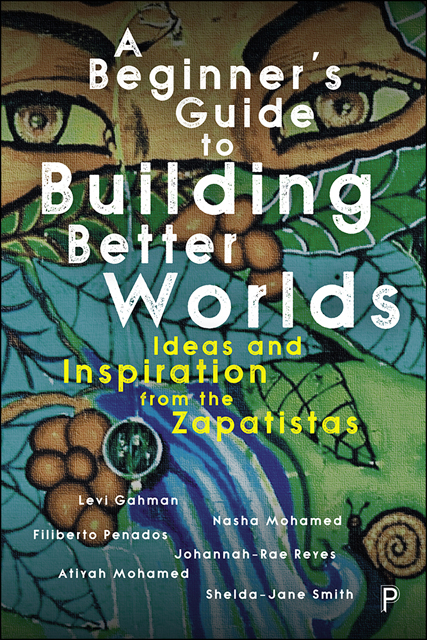Book contents
- Frontmatter
- Dedication
- Contents
- List of figures
- Guilty parties
- 1 Introduction: from liberal bystanding to emancipatory praxis
- 2 A world where many worlds fit
- 3 The coloniser’s model/neoliberal state of the world
- 4 Modernity-coloniality and Indigenous realities
- 5 Dispossession, extractivism and violence
- 6 Critical consciousness and praxis
- 7 Political education and radical pedagogy
- 8 Gender justice and social reproduction
- 9 Health, food sovereignty, solidarity economies
- 10 A battle for the soul of education
- Notes
- References
- Index
3 - The coloniser’s model/neoliberal state of the world
Published online by Cambridge University Press: 13 October 2022
- Frontmatter
- Dedication
- Contents
- List of figures
- Guilty parties
- 1 Introduction: from liberal bystanding to emancipatory praxis
- 2 A world where many worlds fit
- 3 The coloniser’s model/neoliberal state of the world
- 4 Modernity-coloniality and Indigenous realities
- 5 Dispossession, extractivism and violence
- 6 Critical consciousness and praxis
- 7 Political education and radical pedagogy
- 8 Gender justice and social reproduction
- 9 Health, food sovereignty, solidarity economies
- 10 A battle for the soul of education
- Notes
- References
- Index
Summary
Neoliberalism: a brief definition
Neoliberalism defies a singular definition in large part because of its broad application across a variety of social domains, scholarly disciplines, spatial dimensions, and as a result of what it produces economically, culturally and politically (Springer, 2016a). Despite the seemingly never-ending exercise that defining neoliberalism proves to be, the term is regularly used to signify the constellation of political-economic policies and social-cultural relations that have intensified the capitalist status quo during the post-Keynesian era, roughly after the Second World War (Marcos, 2001; Barnett, 2005). This period has largely been marked by escalations in economic liberalism (for example, Reaganomics, Thatcherism) and structural adjustment policies (for example, the Bretton Woods System, Washington Consensus, World Bank, International Monetary Fund [IMF], World Trade Organization [WTO]), along with a rise in socio-political theories promoting austerity, privatisation, deregulation and a purported ‘opening up’ of markets and borders (Cabezas et al, 2015).
The consequences of neoliberalism have been devastating across both the Global North and Majority World/Global South. Here, it is important to take note of the spatial dimensions, bordering regimes and territorial differentiations of neoliberalism (Walia, 2021). That is, both capitalist logics and policies play out differently in different places. While neoliberalism is certainly a driving force of displacement, deracination, dispossession and deterritorialisation, the ways in which it functions and accomplishes each of these things varies widely across space, scale and state. Meaning, geography matters, even if there are identifiable tendencies and patterns associated with how neoliberal capitalism extracts, exploits and alienates. Nevertheless, neoliberalism's economic and philosophical influences are founded on the convergence of two overarching beliefs:
1. That markets, competition and individualism be granted supremacy over all else.
2. That work, production, nature and time be commodified and measured in monetary terms.
Neoliberal thinkers omit or refute the existence and role of structural forces regarding injustice in favour of placing the culpability for widespread social ills like poverty, deprivation and mass alienation on individuals (Roy, 2004; Springer, 2016b).
- Type
- Chapter
- Information
- A Beginner’s Guide to Building Better WorldsIdeas and Inspiration from the Zapatistas, pp. 33 - 46Publisher: Bristol University PressPrint publication year: 2022

